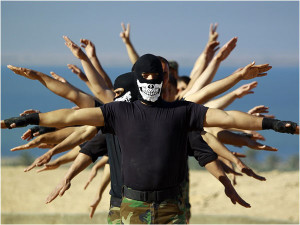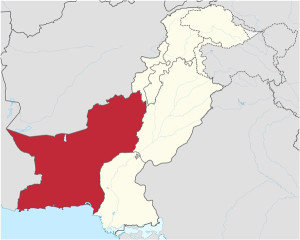
Thar revisited?
Sir,
Five children are dying almost on a daily basis in Tharparkar district of Sindh. The situation is becoming worse day by day and no one from the government to civil society is understanding the reality of the issue. Why are children dying on a regular basis? Since 40 years, I have seen so many donor interventions in Thar and elsewhere, but still things are out of control. The government of Sindh is claiming on an almost daily basis that water has reached all Thar areas, hospitals have been well equipped like Karachi, but then why are children in Thar dying? Why are mothers starving? With these questions in my mind I revisited Thar about two weeks ago. I perturbed over the poverty in the area, which was very much clear from the faces of those living in Thar. The situation that further perturbed me was the introduction of new actors/institutions in the field of development. As I entered the boundary line of Tharparkar from district Badin, I passed through a newly built metal road connected to Thar coal. The road was presenting a picture of a well developed Thar. On this newly built road, I saw very weak camels, cows, goats and more poverty-ridden humans looking at the road with questions on their faces.
Tharis, who are facing starvation, are living hundreds of kilometres away from Thar coal and the road network. Only 3% to 5% are literate who may apply for jobs in Thar coal. 95% Tharis are suffering because they have no access to roads, water, sanitation, food, health and education.
Aijaz Ali Khuwaja,
Karachi.
Summer is coming
Sir,
The mercury shoots up and so does the demand for electricity, far exceeding the country’s generation capacity; the load-shedding genie is about to reemerge and will haunt us for many months before Mother Nature brings milder weather. Last year’s unexpected heat wave in Karachi lasted a couple of weeks and claimed over 1,250 lives. Neither the federal nor the provincial governments accepted responsibility for the failure. If anything, they were busy pointing the finger at each other while K-Electric continues to suffer from the menace of nepotism and hopelessly inadequate administration, which, of course, results in a failure to serve the people of Karachi.
Our national and provincial disaster management authorities are also ill equipped and poorly organised; they are unable to address issues associated with natural calamities and are always late to react. Major political parties have been making fools of the people in successive election campaigns, promising and setting deadlines to control the load-shedding genie.
They never deliver.
Rapid urbanisation and the resultant ever-growing demand for electricity continue to make matters worse. We have been unable to forecast and plan electricity generation, thereby increasing the gap between demand and supply every year.
Pakistan is blessed with four seasons and geographic variations; glaciated mountains, mighty rivers, fertile valleys, plains, deserts and a long coastline. Pakistan is also blessed with huge untapped natural reservoirs of gas and coal. Simultaneously, Pakistan is unique in that the absence of adequate water storage capacity means people are battling natural calamities like floods half the year and severe drought conditions the other half.
Violating the basic spirit of the Indus Water Treaty and going against the accepted international rights of the lower riparian, India has built huge water reservoirs and diverted our share of water for irrigation and electricity generation. Playing the ethnic and linguistic card, our short-sighted political leadership has missed various opportunities to build dams. Successive military dictators, barring Ayub Khan, could not gather the courage to act against the popular political will; Musharraf’s greatest folly was perhaps backing out from the decision to build the Kalabagh Dam. It will be at least a decade before the proposed Bhasha-Diamer Dam bears fruit.
Our present electricity generation/installed capacity of 23,000MW per year is produced by an amalgamation of oil, hydropower, natural gas, nuclear power, solar power and imported sources, but the average shortfall remains in the range 4,000–5,000MW. The demand for power is increasing at an average rate of eight percent per year and the total figure is projected to reach 40,000MW by 2025. Fluctuating oil prices in the international market and massive line losses due to ageing transmission lines and electricity theft are the major causes of circular debt and thus, load shedding. The Neelum-Jhelum Hydel project and Nandipur power project are behind schedule and the present limited generation capacity of the Pakistan Solar Park in the Cholistan Desert is insufficient to meet growing demand.
The strategic China-Pakistan Economic Corridor (CPEC) has provided a much-needed ray of hope for the people of Pakistan. Over US$ 33 billion will be spent on various power generation projects, which will hopefully light the darkness and improve people’s lives inside of a decade. There is a need for all stakeholders to work together to make this strategic project the success we all need it to be.
Forces against the progress and prosperity of Pakistan are all set to derail CPEC by employing all available means, proxies being their principal ones. Fortunately, both the political and military leadership are on the same page for the successful execution of CPEC. We hope the situation will improve with each passing year and will be able to harness the load shedding genie in the near future. The elements of corruption, nepotism, ethnicity, provincialism and inefficiency will have to be overcome and the political parties will have to rise above petty politics to make the dream of ‘Roshan Pakistan’ come true.
Muhammad Latif,
Islamabad.

Constant menace
Sir,
It is time for us to take on ISIS and expose it for what it really is: an organization, which like other terrorists operating in the garb of their distorted version of Islam, has inflicted pain on Muslims all over the world – killing, maiming, spreading the venom of sectarian strife, weakening countries with a majority Muslim population and leaving them unable to confront external threats from those who have exploited religion to create this monster.
Today, Islam, a religion whose Prophet (PBUH) preached peace, tolerance, patience, knowledge and human values, has been misrepresented and twisted into an image that only those who oppose Islam would like to believe in. Since these various terrorist organizations have emerged, numerous Muslim-majority countries have come close to disintegration and been reduced to pariah states. Countries like Afghanistan have been reduced to rubble, while nations such as Iraq, Syria and Libya have been engulfed by civil war.
Pakistan, as the sole nuclear power in the Islamic bloc, is on the radar of those who have masterminded these terrorists. They are out to destroy our institutions, foment ethnic and sectarian strife, and exploit the corrupt bureaucracy and security apparatus. If we allow them to succeed, they will happily watch us disintegrate from within.
Unless we cut off its sources of funding, this Frankenstein cannot be defeated. Both the criminal economy and external finances need to be eliminated. Rampant corruption, money laundering, the unchecked flight of capital and the ease with which the criminal economy is booming all serve to fuel terrorism. Pakistan’s disciplined military under the able leadership of General Raheel Sharif must work in cohesion with the elected civil government, ensuring that the Constitution remains supreme and nobody is above the law. Otherwise, history will never forgive them. Laws are there to be implemented, not broken as is being done in Pakistan.
Malik Tariq,
Dubai.

Saving the country
Sir,
Pakistan’s survival as a sovereign and economically stable nation can only be guaranteed if we adopt Mr Jinnah’s vision of a modern democratic welfare state rather than what it is now; the legacies of men like Ayub Khan, Zia-ul-Haq or Pervez Musharraf.
We must accept the failures of successive civil governments in strengthening the state regulatory institutions so vital to maintaining a system of checks and balances on abuses of power. If elected civil governments had ensured that the FIA, police and other state institutions tackled and curbed visible irregularities, moves by the khaki establishment to address institutionalized corruption and pilferage, would not have been welcomed by the masses, or even required, for that matter. No system in the world can deliver in the absence of exemplary punishments for those who violate laws, abuse powers and indulge in corrupt practices. The tax evasion problem is so great that state sovereignty and the national interest are being compromised by submitting to the dictates of donor agencies and countries.
The curse of greed-based corruption has engulfed every institution, blinding them to their responsibilities. This nexus between the criminal economy and ruling elite produces an environment that is highly conducive to the propagation of terrorism. The 1973 constitution requires the elected leadership to provide good governance, collect taxes, punish law breakers, make appointments on merit, invest in education and health and build basic infrastructure with an emphasis on technology transfer, as much as it confines the armed forces to their specifically defined constitutional role.
All state institutions must serve the people and provide security of life and property. No institution, including the army, is above the Constitution. The greed-based culture of state land allotment to paid servants of the state or elected office holders must cease; state assets must be confined exclusively to those who die in service of the nation, are permanently handicapped or belong to the most deprived sections of society. Regulatory institutions must be seen to be independent and free from political and establishment influences, and become proactive in prosecuting those who violate the law of the land.
Malik Tariq Ali,
Lahore.

Hope fades
Sir,
It is deeply ironic that Balochistan, which offers the country so much as a rich source of natural gas, coal and other minerals, should top the chart in terms of infant and maternal mortality rates, rural poverty levels and low literacy rates. Not only is Balochistan deprived in terms of positive development outcomes, it is also the victim of religious extremism, which has seeped into the roots of the province. Terrorist organisations continue to operate publicly, threatening the Shi’a Hazara community in Quetta and carrying out murderous attacks in broad daylight. Perhaps, it is time to shift our focus from Islamabad to Quetta.
Gwadar Port, located on the coast of Balochistan, could open the door to a range of economic opportunities for Pakistan. As a potential trade route between the Central Asian states and the Gulf, Balochistan has immense undiscovered prospects, which could create a conflict of interest between countries that may be affected by any such development in the region. Gwadar Port offers Pakistan a strategic advantage in case of conflict with India: the Gwadar agreement with China threatens India’s naval security as it allows the Chinese sea access to India.
People have pinned their hopes on the present provincial government, which consists of both Baloch and Pashtun nationalists, for a breakthrough in political negotiations. But there are numerous obstacles in any reconciliation process. The lack of ideological cooperation between nationalist militants and federal security agencies over provincial administration matters has added to the already chaotic situation.
Despite operations carried out by the Pakistan army, different groups have managed to steadily weaken the hold of security forces over the province. Meanwhile, the government’s lackadaisical approach to the province has further fuelled nationalist sentiments. The authorities have long tried to deprive the people of Balochistan of the natural resources that originate in their province. While the name Sui is synonymous with natural gas in Pakistan, most of Balochistan remains deprived of a resource that exists within its own territory. Those who do have access, suffer from irregular supply routines, gas load-shedding and pipeline disruptions.
Balochistan is a key player in terms of strategic motives and economic interests. Neighbouring countries see it as a gateway through which resources can be transferred at cheaper rates and greater efficiency. This highlights the province’s investment potential, which countries such as China and Russia are keen on exploiting. There is also the possibility of proxy wars between separatist movements and the state, and possibly between Iran and Pakistan.
Yet, the common man is unaware of the situation in Balochistan – much like West Pakistan turned a blind eye towards East Pakistan after 1947. The only news we get from Balochistan is bad news. Let us hope for change for the better.
Muhammad Mustafa Moeen,
Karachi.

Distressing situation
Sir,
Like many grey areas that merit special attention of those running this country, education too merits their undivided attention. Despite the fact that some attention has been paid to education by successive governments, particularly during the past decade or two, much still remains to be done in this extremely vital area of socio-economic development. Undeniably, education holds the key to the success of any nation. Factually, no nation has ever attained its socio-economic goals without assigning education the highest place in its agenda for national development.
History remains witness to the fact that nations that have attained outstanding progress in almost every sphere of national life, and are regarded as highly developed nations of the world, have reached the pinnacle of success only because they made education a priority. According to a latest government report, a staggering 24 million Pakistani children are out of school. This unambiguously exposes the state of education in a country where around a quarter of the population is believed to be below 16 years of age. According to the annual Pakistan Education Statistics report for 2014-2015, of the 50.8 million children aged five to 16 in the country, 47 per cent do not receive an education. One must acknowledge that the courage and candor with which a stark reality, vis-à-vis the state of education in the country, has been exposed in a government document is truly a rare example in Pakistan. The credit for this naturally goes to the incumbent government.
According to the report, Pakistan has not conducted a national census for 17 years now, but around two-thirds of the roughly 200 million populace of this country are believed to be below the age of 30. The report, released Thursday, February 25, 2016 and compiled using population projections and demographic analysis, put the number of school-age children at 50.8 million. Of the 24 million children who are not in school, more are girls — 12.8 million compared to 11.2 million boys, said the report, which also revealed that 69 per cent of children enrolled at primary school level drop out by the fifth year. The report also highlights the lack of resources for education in Pakistan. Yet more candidly the report unfolds the fact that around 29 per cent of government primary schools operate with just a single teacher. Eighteen per cent have only one classroom, and nine per cent do not even have a building, it says.
In spite of the extremely dismal scenario projected by the report under reference, it did have something positive to convey — the number of children out of school is around one million less than the previous year. Prime Minister Nawaz Sharif recently took the onus of revamping and upgrading the Model Schools of the capital of the country on his own shoulders. Mariam Nawaz is playing a pivotal role in pushing this important programme through and helping her father attain this vital goal that he has set forth for himself and his government. One sincerely wishes that once this project of national importance is successfully implemented in Islamabad, endeavors will be made to replicate it across the country. There shouldn’t be any second thought on this extremely important matter of national significance.
M Fazal Elahi,
Islamabad.

